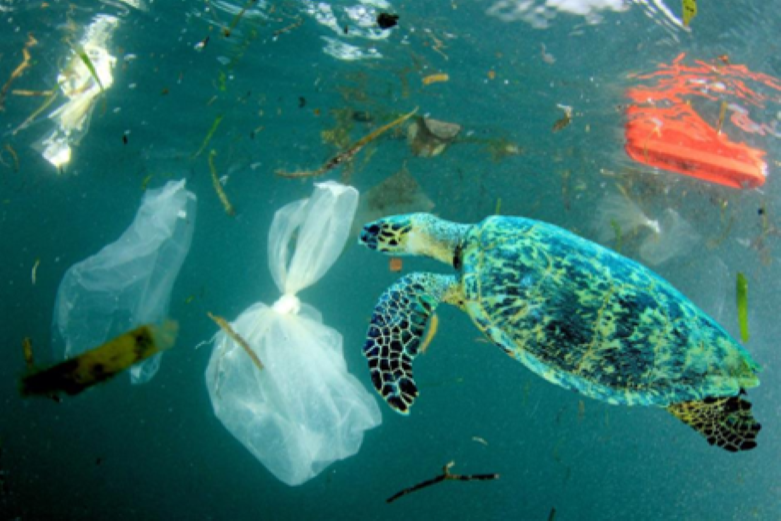Environmental Science Major

Environmental Science
Major
Environmental science is a multidisciplinary, integrative, science-based study of how humans affect the planet. Its goal is to create a sustainable future for all. As a USMA major, Environmental Science prepares cadets for future careers in the Army, the sciences, public policy, law, medicine, business, and much more.
Offered by the Department of Geography and Earth Sciences.
academics-sidebarnav
Environmental science is a multidisciplinary, integrative, science-based study of how humans affect the planet to create a sustainable future for all. Environmental scientists explore, discover, describe, and investigate the Earth. Environmental science goes beyond the traditional natural sciences to also incorporate knowledge from political science, ethics, public health, and economics.
The Environmental Science major is flexible, relevant, and includes a pre-med option for those interested in pursuing a career in medicine. This major prepares cadets for future careers in the Army, the sciences, public policy, law, medicine, business, and much more. Majors may earn the 3Y skill identifier.
Environmental Science majors have a lab requirement component. This major also offers an honors track for cadets with high GPAs who want to conduct independent research on their environmental science interests.
To learn more about this area of study, please contact GEO and explore what environmental scientists do!
This major includes 6 required courses and 7 optional courses.
IT/CYBER Requirement
Cadets in this major will satisfy the IT/CYBER requirement by successfully completing the IT/CYBER content in the core curriculum and CY305/355.
- CY305 - CYBER FOUNDATIONS
- CY355 - CYBER FOUNDATIONS - COMPUTING
Core Engineering Sequence
Cadets in this major are directed to take the Environmental Engineering sequence to support their major.
- EV300 - ENVIRONMENTAL SCIENCE
- EV350 - ENVIRONMNTL ENGR TECHNOLOGIES
- EV450 - ENV ENG FOR COMMUNITY DEVELOP
Writing in the Major
Cadets in this major satisfy the West Point Writing Program requirement by successfully completing writing requirements in the core curriculum and this course in the major.
- GE300 - GLOBAL ENVIRONMENTAL SYSTEMS
Foundation Courses
- GE300 - GLOBAL ENVIRONMENTAL SYSTEMS
- GE331 - AQUATIC SCIENCE
- GE333 - PHYSICAL GEOLOGY
- GE431 - ECOLOGY
AND
Atmosphere Course (choose 1)
- GE321 - CLIMATOLOGY
- GE324 - METEOROLOGY
AND
Tools Elective (choose 1)
- CH387 - HUMAN PHYSIOLOGY
- GE310 - GEOG INFORMATION SYSTEMS
- GE373 - REMOTE SENSING
AND
Depth Electives (choose 2)
- CH383 - ORGANIC CHEMISTRY I
- CH384 - ORGANIC CHEMISTRY II
- EV396 - ENVIRONMENTAL BIOLOGICAL SYS
- GE310 - GEOG INFORMATION SYSTEMS
- GE351 - LAND USE PLAN & MGT
- GE354 - NATURAL HAZARDS AND RISK
- XS391 - PRIN & APPL OF ENV CHEM
Field Electives
- Choose 1 from a list of 45 courses
Learn More
Cadets in this major can work with one of the Department of Geography and Earth Sciences (GEO) research centers and engage in any number of domestic or international Academic Individual Advanced Development (AIAD) internships, USMA-run academic internship experiences.
Examples of GEO-specific AIADs:
- Helicopter Landing Zone Analysis (CO, AK, HI, Kwajalein Atoll)
- National Geospatial-Intelligence Agency (St. Louis and Washington, D.C.)
- Army Geospatial Center (Washington, D.C.)
- Geospatial Research Lab (Washington, D.C)
- North Slope Unmanned Aerial Surveying (AK)
- Combat Capabilities Development Command (MD)
Learn more about GEO’s internship opportunities.
Examples of research:
- Detection of Seasonal Arctic Terrain Change Using a Small Unmanned Aircraft System (sUAS)
- Resolution Analysis of Helicopter Landing Zones
- Eagle Valley Cemetery Veteran Tracking
- Machine Learning Exploration of Armed Conflict Location and Event Data (ACLED) for Regional Predictive Analysis
- GIS Modeling of Lead Transport on Firing Ranges
- Lidar Scanner Stability and Accuracy Assessments
Honor Societies:
- Golden Key - International Honour Society
- Phi Kappa Phi - Oldest and Largest Collegiate Honor Society
To learn more about enrichment for this area of study, visit the Department of Geography and Earth Sciences or the Center for Environmental and Geographic Sciences (CEGS).